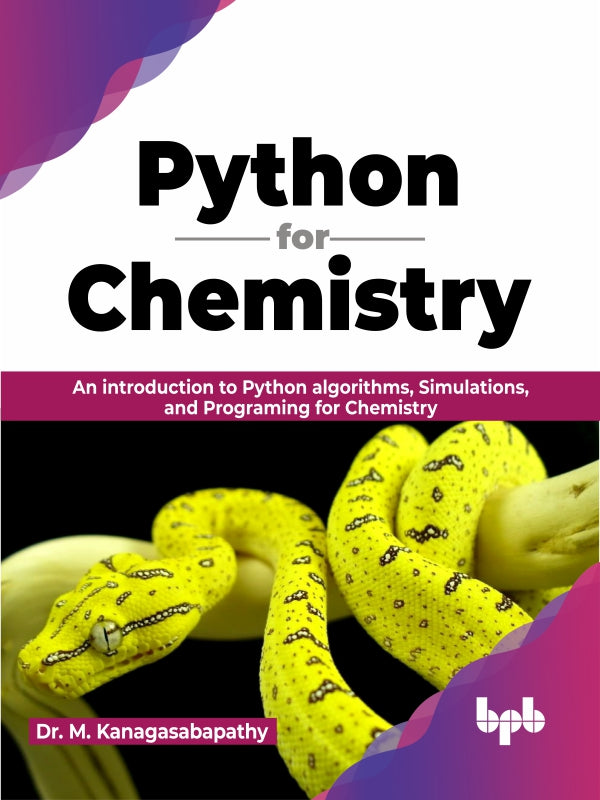
Python for Chemistry
FREE PREVIEW
ISBN: 9789355517975
eISBN: 9789355517951
Authors: Dr. M. Kanagasabapathy
Rights: Worldwide
Publishing Date: 20th March 2023
Pages: 368
Weight:
Dimension: 7.5*9.25 Inches
Book Type: Paperback
ISBN: 9789355517975
eISBN: 9789355517951
Authors: Dr. M. Kanagasabapathy
Rights: Worldwide
Publishing Date: 20th March 2023
Pages: 368
Weight:
Dimension: 7.5*9.25 Inches
Book Type: Paperback
DESCRIPTION
TABLE OF CONTENTS
ABOUT THE AUTHORS
Choose options

Python for Chemistry
Sale priceRs. 899

